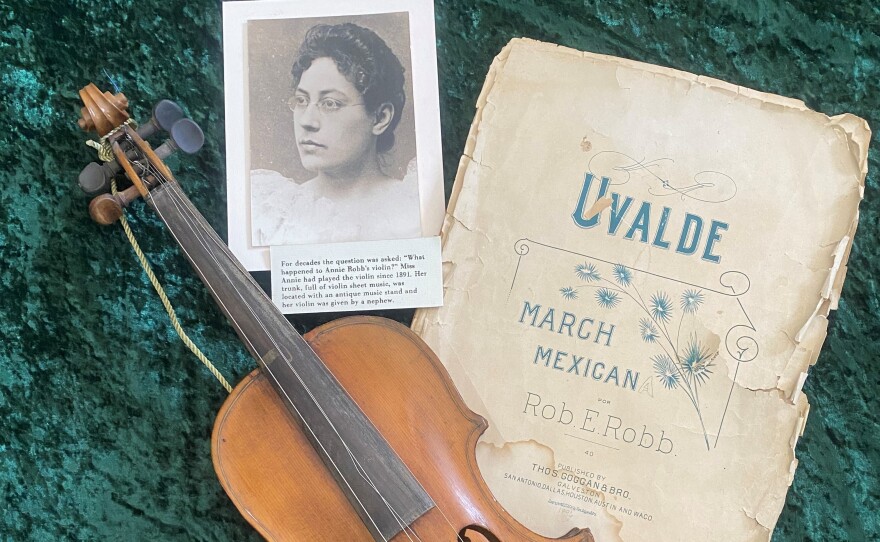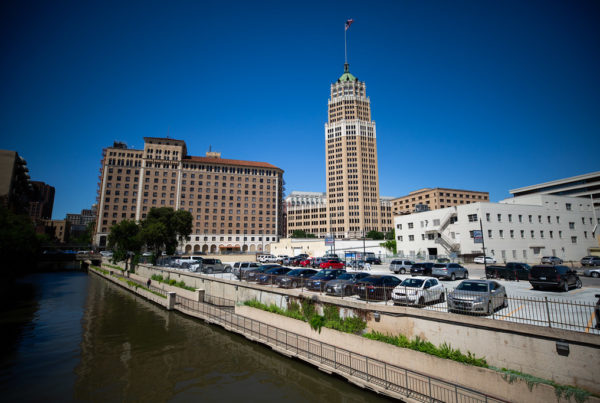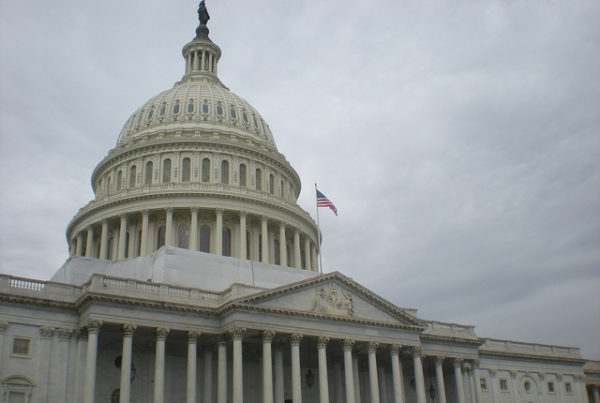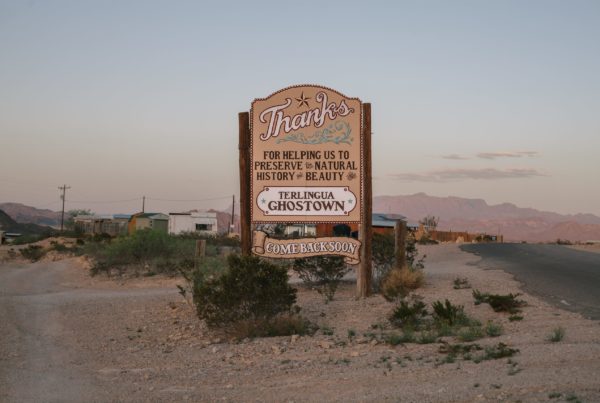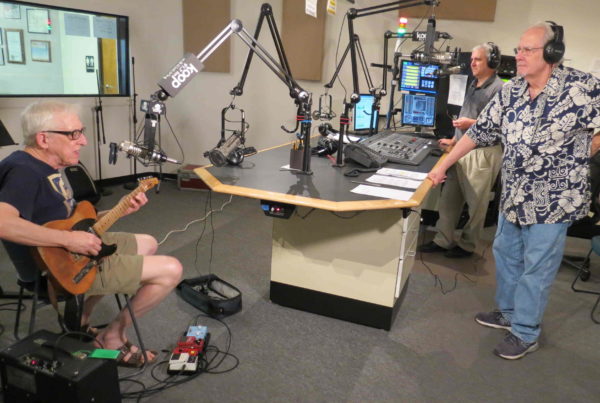From Texas Public Radio:
The Uvalde community plans to tear down Robb Elementary School, the site of the shooting on May 24 that left 19 children and two teachers dead. But it’s not certain what will happen to the space once the building is cleared away. In the midst of their grief, Uvalde residents are also considering new ways to still honor Annie Robb — the school’s namesake.
Some community members are determined to recover the educator’s noble legacy from the shadow of unforgettable tragedy.
Uvalde is a community of public plazas, shaded parks and libraries. Local researchers say it’s all part of the legacy of Annie Robb, an intellectual, teacher and community leader.
She was one of a group of teachers that is still celebrated today. Mendell Morgan Jr. is director of El Progreso Memorial Library.
“There were actually four very prominent women teachers, Ms. Robb, Ms. Benson, Ms. Dalton, and Ms. Anthon. And all four actually had schools named for them because of their long tenure as teachers in the Uvalde community,” Morgan said.
Annie Robb was born in Rockport in 1873. When she was 11, she and her family moved to Uvalde. In 1891, she was one of the first graduates of Uvalde High School. The ceremony was held in Uvalde’s Grand Opera House.
She became a teacher, and she taught at elementary schools in Sabinal and El Paso before returning to Uvalde.
Robb loved to play the violin. She also believed in self-improvement, and she joined like-minded citizens at El Progreso Club, which was dedicated to both self and civic improvement.
One of the projects Robb and her team focused on was building up the town library, and for more than a decade they oversaw a growing collection of books.
In 1918, they made it all free to the public. A short article in the San Antonio Expressabout the dedication ceremony added that by then the library held 2,000 books.
The library also needed a secure financial footing — only community donations kept the doors open and free to visitors. By 1926, Robb and her group convinced the Uvalde City Council to permanently fund what became El Progreso Memorial Library.
Susan Anderson is the preservation officer for the City of Uvalde and a member of the Uvalde County Historical Commission. She thinks Robb was fortunate to be an educator and intellectual during a time of great social and political change.
“This is the Progressive era of politics, and the women are fighting for the vote and trying to have more representation, but they can’t vote yet, but they still had a great influence on this community,” she said.
Anderson said Robb’s circle of colleagues and friends met often, and they educated and entertained each other with research papers they wrote about various topics of the day.
“The women met on Saturdays — and now to think about giving up a Saturday afternoon for two to three hours to go to a meeting just seems ludicrous. But you had worked all week and you had done your laundry, and now it was your day to do something fun. And while writing a paper and presenting it at El Progreso doesn’t sound fun to me, getting to be with those other ladies was their fun. That was their entertainment. And the same thing goes with the productions at the Opera House,” she said.
The Uvalde Grand Opera House is where Robb participated in community theater and played the violin. Her instrument is on display at the opera house today. Caitlin Visel is the manager.
“As a musician she would have been involved in any number of things that happened here. There are accounts that Robb performed in the musical ‘Remember the Maine,’ ” she explained. “We also have the ‘Mikado’ she could have performed in, and her older brother, Robert Robb, was a musician and composer, and she definitely played in anything that he put together and had here.”
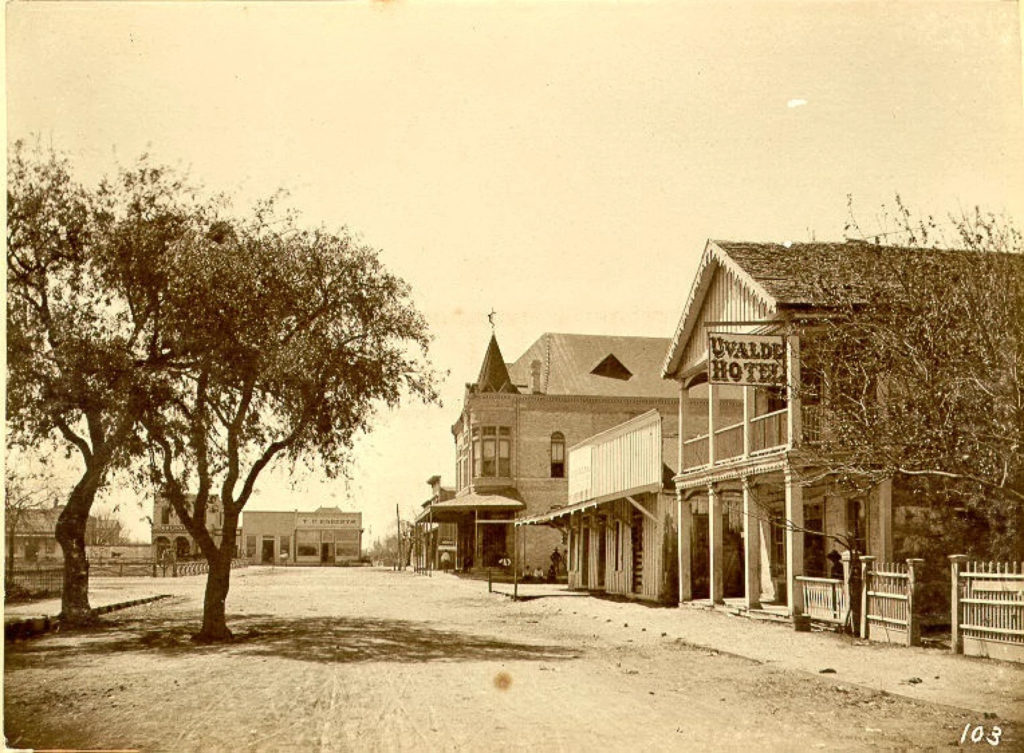
The Uvalde Grand Opera house with a steeple can be seen in this turn of the century photograph.
“Remember the Maine,” was a performance inspired by the sinking of the USS Maine in Havana harbor. The incident was blamed on Spain and helped trigger the Spanish-American War in 1898. “The Mikado,” set in an imaginary Japanese town, was a Gilbert and Sullivan opera originally performed in 1885.
Teacher, intellectual, musician — and Robb was also an environmentalist. Around 1898, she teamed up with other residents to save a grove of oak trees from being chopped down and sold.
They went door to door to raise $75. The city matched it, and the land was bought for the city for $150. The tree-shaded space was known simply as “The Grove” until after World War I, when it was formally named Memorial Park to honor those lost in the war.
Anderson said Robb was also part of a community effort that got the city council to install water faucets at two public plazas to better care for landscaping. Fences also went up on the plazas to keep out livestock.
Robb died in 1954 at the age of 81. Like all great teachers, Robb left a lasting impression on her students.
When the community built a new school and held a contest to pick a name, Gene Kincaid, a local attorney, led the movement to name the school for her. Robb was Kincaid’s math tutor.
The building was named Robb Elementary School a few years after Robb died. Morgan explains how Kincaid succeeded.
“He was very clever. His father owned a hotel and he got all the employees at the Kincaid Hotel, plus his family and some other friends to vote for Ms. Robb, so she got the largest number of votes and the school was named in her honor,” he said.
Anderson said the focus of Robb’s life was education. Neither she nor her brother, Robert, had descendants.
“In essence, the children of Uvalde are her children — and for many, many generations,” she said.
Morgan said Robb left some money in her will for the schoolchildren of Uvalde. Shortly before she died, she explained her feelings about teaching to a reporter:
“In a interview in 1954 (she said) ‘There was never anyone in her class she did not enjoy teaching,’ which I think is a beautiful sentiment to remember her by,” Morgan said.
This June, the decision was made to tear down the building that bears her name. For some residents, the desire to move forward from the May 24 shooting has to be balanced with the desire to not forget what Annie Robb contributed to Uvalde.
Also, historians of the Mexican American civil rights movement cherish Robb Elementary because of its key role in a protest in April 1970. By then, the dilapidated building was known as “the Mexican school.”
A Mexican American teacher who tried to plant trees and make other improvements to the school was fired without cause, and outraged parents pulled their children out of Robb and other campuses. High schoolers staged a walkout. Protestors presented several demands, including more Latino teachers in desegregated schools.
The standoff lasted six weeks. It ended quietly, but it inspired the community to ensure its demands for fairness were heard. The legal fights ignited at Robb Elementary lasted decades and were ultimately successful.
Will Annie Robb’s name live on? Morgan definitely thinks it should — in some form, somewhere.
“My personal opinion is that we should continue to honor her in the community because she is one of these strong, pioneering that did so much for our city,” Morgan said.
Anderson agrees.
“Maybe instead of naming a new building after her, maybe we build a memorial on that site or a park or something that — and I’m going to tear up — a park actually would be the ideal thing to have for this woman who helped maintain our beautiful plazas downtown and a place for those children to play that she cared so much about.”
Regardless of what comes next, there’s one monument to Annie Robb that is everlasting — that’s her tombstone in the Uvalde Cemetery, where she is buried next to her brother.
Fernando Ortiz Jr. contributed to this story.


